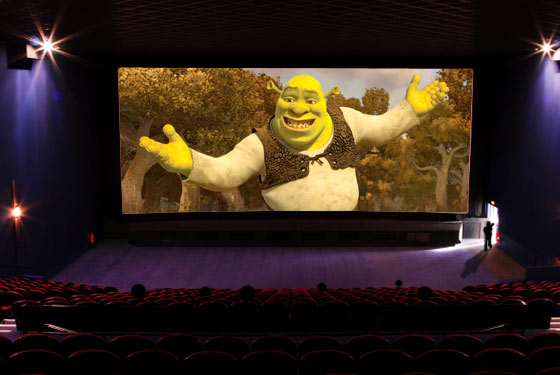
Conventional wisdom in Hollywood of late has said that you should stick to familiar brands when making movies. It could be a sequel or an adaptation of an old TV show, board game, toy, or crumpled candy wrapper, just as long as people already know it. So how’s that working out? In a summer season where only three out of the fourteen major releases so far have come from a new idea, attendance is down 13.3 percent from last season. Even with The Karate Kid’s surprise bounty, box-office revenue is down 7.5 percent, according to the National Association of Theater Owners … and that is skewed more by 3-D gouging than anything else: Since the summer of 2009, ticket prices have actually gone up 8 percent. That’s why studio execs at Warner Bros., Paramount/DreamWorks, and Universal are now madly pinging agents and managers with an uncharacteristic, desperate, and welcome request: Send us your fresh material!
“We’re on a lot of calls with people at the highest level [of production], and they’re just nervous,” one agent tells Vulture. “They’ve been telling us, ‘We have our movies for next year, but attendance is down, so, guys, you know what? Get us the original material. We need some original shit, because now our bosses are on us.’” It’s no wonder panic is in the air, considering how moviegoers are rebelling. “People are feeling marketed to, as opposed to catered to,” says JC Spink, a partner in the management and production company Benderspink and one of the executive producers of last summer’s surprise original hit, The Hangover. “I think we’ve all gone a little bit overboard as an industry. There hasn’t been room for original material for a little while now. It’s a shame, because I don’t think it’s what anyone [who works in the business] came out here for.”
Here’s a quantitative illustration of people’s franchise weariness: According to the most current market research by E-Poll, which surveys people’s interest, connection, and loyalty to familiar characters for movie studios, 59 percent of Americans view the Shrek character favorably … as compared to 64 percent score for advertising’s green M&M. A year ago, studios might have reacted to this news by yelling, “QUICK, STAKE OUR CLAIM FOR MEMORIAL DAY 2012 FOR GREEN M&M: THE MOTION PICTURE!”; instead, they’ve gotten the message that their franchises are fading and are suddenly paying handsomely for original ideas and — even better for the creative community — moving them quickly towards the big screen.
• In May, Ivan Reitman’s Montecito Picture Company picked up Field Trip, an original sci-fi adventure-comedy from Jordan Cahan (My Best Friend’s Girl) and set it up at Paramount. That same month, the studio also picked up Fun Size, an original teen comedy from Colbert Report writer Max Werner, with Gossip Girl co-creators Josh Schwartz and Stephanie Savage producing.
• Two weeks ago, Summit Entertainment paid Boaz Yakin (who, ironically enough, also co-wrote the video-game-born bomb Prince of Persia) and Edward Ricourt handsomely for their script Now You See Me, an original heist movie about a gang of criminal illusionists who use their skills to make millions disappear from bank vaults. Fringe co-creators Alex Kurtzman and Roberto Orci are producing.
• Also, two weeks ago, Universal paid $1 million for Most Wanted, a comedy pitch that would reunite The Proposal’s cast, writer, and director. And around the same time, across town, DreamWorks placed the winning bid in a three-way battle for a new action-thriller pitch about an international heist from John Hlavin, formerly a writer on F/X’s The Shield.
“What makes this business work are the things nobody expects,” says Patrick Corcoran, NATO’s director of media and research, noting that box office for the summer is $106 million shy of what it was last year at the same time. “If people start to feel like they’ve seen the same thing over and over again, they stay home.” Spink says that while he think this box office “isn’t going to end the pre-branded craze, it will slow it down, and I think we’ll see even more original material selling.” And he hopes so: Next week, he’s sending around a spec thriller screenplay called The Tracks, based on the true story of a possible DEA cover-up of a bizarre 1987 double murder in Arkansas. And it was only a year ago studios would have been asking, “Any way to use that crime, but have Plastic Man solve it?”




